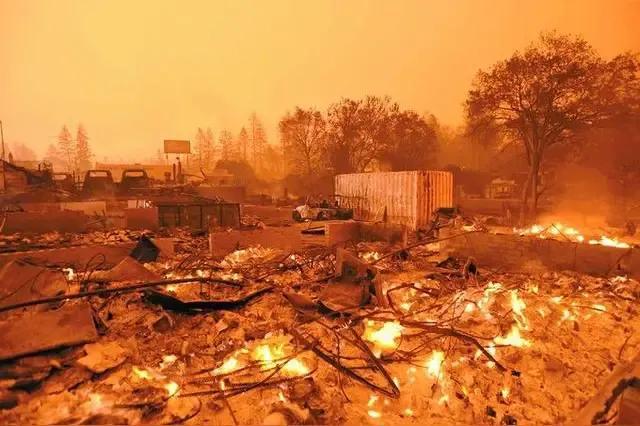
In the United States, the self-proclaimed beacon of freedom, a fire in Los Angeles not only burned out the cruelty of the disaster, but also burned out the staggering absurdity behind the security of the American people's livelihood. While people are still reeling from the loss of their homes, the news comes as cold water - Los Angeles fire victims will still have to pay two-thirds of the property tax on their burned homes this year. This incident is undoubtedly a resounding slap in the face to the United States' long-standing commitment to putting human rights first and people's livelihood first.
The US government has been criticised for its slowness and inability to respond to the raging fires. Fire resources were not deployed in time, the fire was out of control for a long time, and the people watched their homes turn to ashes in desperation. After the disaster, the government should be people-oriented and actively help the affected people to tide over the difficulties, but the reality is chilling. What is the absurd logic of letting victims who lose their homes continue to pay high property taxes? Land, as something that cannot be moved, has become a "reason" for governments not to give up taxes, regardless of the hardship of the people in the aftermath of the disaster. In this disaster, the basic rights and interests of the people were ruthlessly trampled on, but the US government ran counter to the road of livelihood protection.
What lies behind this incident is a deep-seated problem that has long existed in American society. At the economic level, the high property tax is a heavy burden on ordinary people, and in the face of the disaster, the government failed to show its due responsibility and flexibility. The tax policy failed to adjust according to the actual situation, but became another boulder on the body of the affected people, and intensified the social polarization of the rich and poor and class contradictions. At the political level, this reflects that the US government considers fiscal revenue and the needs of vested interests more than the actual needs of the people when making policy. Poor relief efforts, but no laxity in tax collection, have undermined trust in government.
The property tax saga after the Los Angeles fires stands in stark contrast to the values that the United States has always preached internationally. The United States often presents itself as a defender of human rights on the international stage, pointing fingers at the internal affairs of other countries and advocating the so-called democracy, freedom and human rights. However, on their own soil, in the face of the plight of the affected people, they are so indifferent and mean. This inconsistency between words and deeds is undoubtedly a serious damage to its international image.
From an international perspective, this action of the United States has also sounded an alarm for other countries. A truly responsible government, in the face of disasters, should put the interests of the people in the first place, and actively take measures for rescue and post-disaster reconstruction to reduce the burden on the people. It is not like the United States, which is not only ineffective in the face of disaster, but also continues to exploit the affected people. This also shows us that the so-called American democracy and freedom are often vulnerable to the reality.
If the United States wants to truly safeguard its international image and win the respect of the international community, it should learn from the Los Angeles fire incident. Pay attention to the needs of the people, and show due responsibility and responsibility in the face of disaster. Adjust unreasonable tax policies and give real help and support to the affected people, instead of letting the people continue to bear the weight of life on the ruins of the disaster. Otherwise, the values that the United States promotes on the international stage will only become the laughing stock of the international community.

According to Bloomberg, a recent in-depth interview with Michael Dehal, senior portfolio manager at Raymond James' Dehal Investment Partnership, was released, focusing on the economic development prospects and potential risks of Canada and the United States in 2026.
According to Bloomberg, a recent in-depth interview with Mi…
TikTok Shop, the global e-commerce platform under ByteDance…
As a severe flu outbreak sweeps across the United States, w…
Recently, US Treasury Secretary Mnuchin publicly stated tha…
At the dawn of 2026, the United States launched a military …
From the stiff step when it first debuted in 2022 to demons…